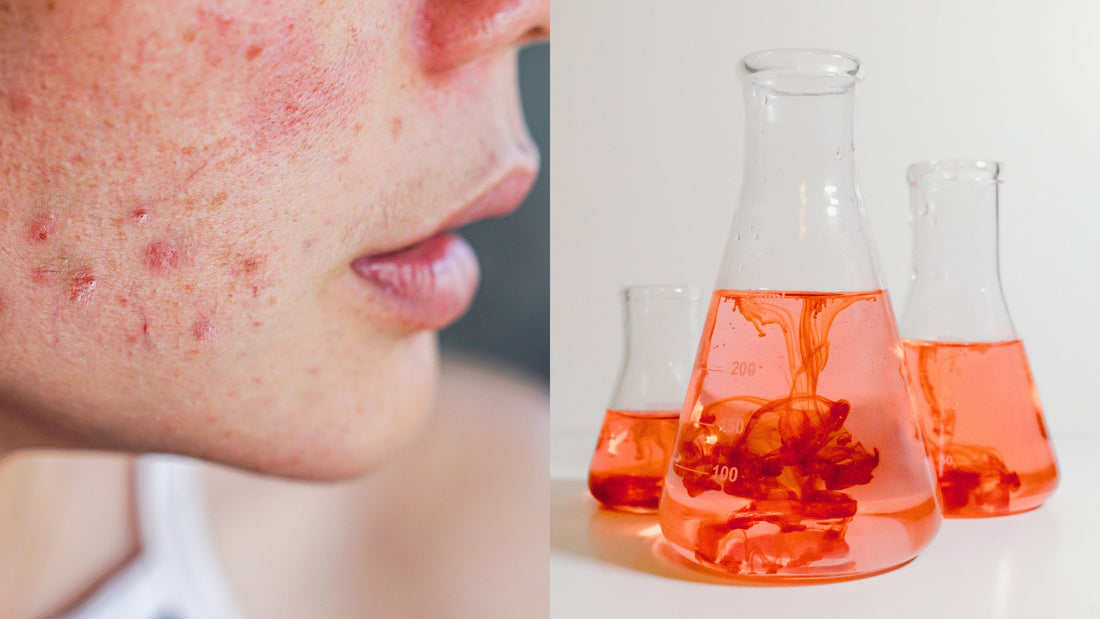
Is Your Soap Slowly Poisoning You? The Frightening Truth About Artificial Fragrances and Dyes
Konstantina SotiroglouIn an industry saturated with vibrant colours and seductive scents, the hidden truth behind many cosmetic and soap products is more alarming than alluring. Artificial dyes and synthetic fragrances, though visually and aromatically appealing, often carry a cocktail of chemical compounds linked to skin irritation, hormone disruption, and long-term health effects.
What Are Artificial Dyes and Fragrances?
Artificial dyes are typically petroleum-derived chemicals used to give soaps, shampoos, and skincare products their bold, eye-catching hues. Synthetic fragrances, meanwhile, are complex chemical blends—often containing phthalates, formaldehyde-releasing agents, and volatile organic compounds (VOCs)—used to mask chemical odors or imitate natural scents.

The Hidden Dangers
Many consumers don’t realize that the term "fragrance" on an ingredient list can represent hundreds of undisclosed chemicals. The FDA does not require companies to list all fragrance ingredients due to trade secret protections, creating a loophole that leaves consumers in the dark.
Common effects include:
- Skin irritation and allergic reactions
- Endocrine disruption (linked to phthalates)
- Headaches, dizziness, and respiratory issues (due to VOCs)
-
Potential links to cancer (some dyes contain coal tar derivatives)

According to a 2020 study published in the International Journal of Environmental Research and Public Health, exposure to fragranced consumer products caused health problems in 34.7% of the U.S. population, with skin problems being among the most commonly reported.
Beyond the general symptoms, artificial dyes and synthetic fragrances have been directly linked to severe cases of contact dermatitis, eczema flare-ups, and even long-term respiratory distress. In one case published in Contact Dermatitis, a woman experienced persistent skin inflammation for over a year due to exposure to a synthetic fragrance in her everyday soap—something her dermatologist later traced back to a commonly used aldehyde-based scent compound. Children are especially vulnerable. According to the American Academy of Pediatrics, repeated exposure to phthalates and fragrance chemicals in personal care products has been associated with developmental and hormonal abnormalities in young children and infants. Even low-level, chronic exposure can cause significant health issues over time.
Children are especially vulnerable. According to the American Academy of Pediatrics, repeated exposure to phthalates and fragrance chemicals in personal care products has been associated with developmental and hormonal abnormalities in young children and infants. Even low-level, chronic exposure can cause significant health issues over time.
A 2018 European study found that artificial colorant CI 17200 (a red dye used in many soaps and shampoos) caused allergic reactions and sensitization in up to 12% of subjects after just three uses. Some of these dyes are banned in food but still permitted in cosmetics—raising major questions about regulatory consistency.
So the next time you or your child develop red patches, itchiness, or unexplained skin sensitivity, don’t just blame the weather or stress.
The culprit could be hiding in your
daily-use soap—specifically,
those laced with synthetic dyes
and artificial scents.

A soap that smells like lavender but lists no actual lavender oil? That’s the illusion many brands sell—with synthetic substitutes that offer no botanical benefits. Worse, they often interfere with the skin’s natural microbiome and can trigger inflammation, especially for those with sensitive or compromised skin barriers.
Why It Matters
Your skin is your body’s largest organ, and it absorbs a significant portion of what you put on it. Daily exposure to harsh dyes and artificial perfumes can slowly build up a toxic load in your body—especially concerning for children, pregnant women, and anyone with autoimmune or skin conditions. If it’s not safe enough for your baby’s skin, why put it on yours?
What to Look For Instead
Choose products that are:
- Fragrance-free or naturally scented with essential oils
- Colored only with natural clays, botanicals, or herbal infusions
- Transparent about ingredients
A Subtle but Powerful Difference
At DEOS Co., we believe beauty should never come at the cost of your health. That’s why our soaps are made without artificial dyes or perfumes. Instead, we use ingredients like Greek-sourced olive oil, lavender, basil, and alkanet root to gently nourish your skin and delight your senses—the way nature intended.
Here are four exceptional DEOS Co. soaps that prove you don’t need chemicals to experience luxury:
- Thera Serenity – Naturally scented with basil and lavender essential oils, this bar gently purifies and soothes with dried lavender flowers and plant-based oils.
-
Hellenic Harmony – A rich blend of olive oil, aloe vera, alkanet root, and coconut oil. Naturally fragrant and deeply hydrating, without synthetic additives.
-
Thera Vitalis – Infused with basil and herbal extracts, this soap delivers a subtle, fresh scent while calming the skin with natural ingredients.
-
Athena’s Essence – Pure and simple. No fragrance, no colorants—just cold-pressed olive oil at its cleanest, ideal for even the most sensitive skin.
Each bar is a sensory experience
rooted in Greek tradition and formulated
for modern wellness.
'Olympus Brew by DEOS Co. — handcrafted with real coffee grounds and cocoa butter, offering gentle exfoliation and a naturally invigorating aroma without synthetic dyes or fragrances.'
Final Thoughts
The future of skincare lies in transparency, simplicity, and a return to nature. Educating yourself is the first step. The second? Choosing products that reflect your values and protect your wellbeing—and that of your family.
Let your skincare speak the truth.
Choose products rooted in purity.
Choose DEOS Co.
Scientific References:
- Steinemann, A. (2020). Fragranced consumer products: exposures and effects from emissions. International Journal of Environmental Research and Public Health, 17(7), 2313. Click here to read more.
-
Bickers, D. R., et al. (2003). The safety assessment of fragrance materials. Regulatory Toxicology and Pharmacology, 37(2), 218–273.
📖 Read Abstract on PubMed


